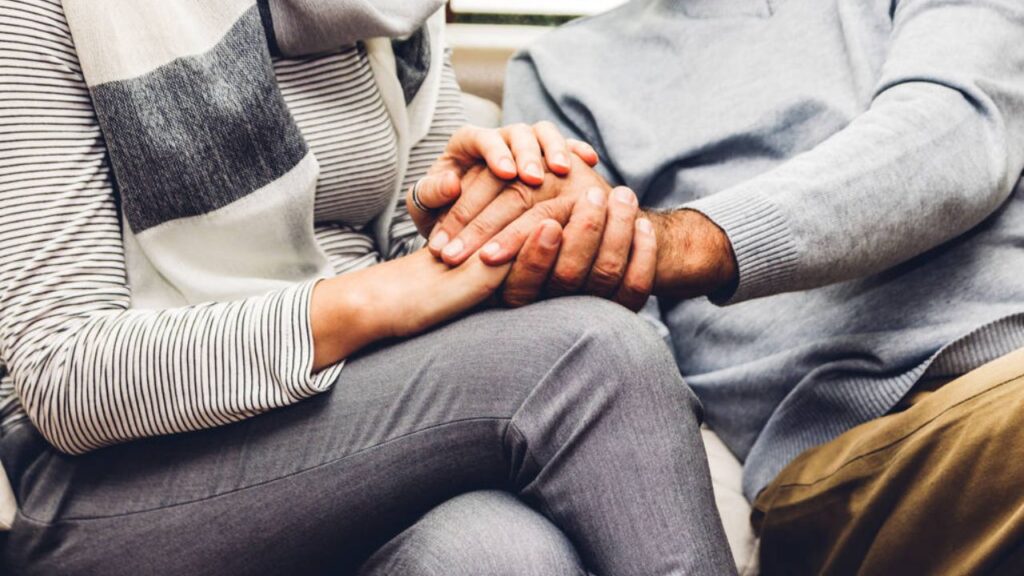No matter how long a couple has been together—five decades or five months—any relationship can benefit from professional counselling or therapy for a variety of reasons. If both partners are prepared to put in the effort, seeing a therapist or marital counsellor could greatly enhance the dynamic and health of your relationship or marriage. Perhaps the same disagreements keep occurring, or perhaps both of you find it difficult to communicate.
In fact, it is not even necessary for there to be a “problem” in the relationship in order to think about seeing a therapist. Couples who just wish to improve their bond and feel more connected to one another can benefit from therapy.
Signs That Counselling Is Needed and When to Get Counselling
Whether or if you and your spouse are prepared to see a therapist or counsellor is something you may not be sure of. Observe the warning indicators listed below.
You’re having trouble communicating
A counsellor or therapist may be needed if a couple discovers that their attempts at communication are falling short.
Additionally, you should be conscious of your feelings as you try to communicate. According to Bronstein, couples that have trouble communicating without becoming agitated might benefit from counselling.
There is more bad than good.
This could be a major red flag for couples who discover they spend more time fighting and sorting out issues than they do having fun together. According to Bronstein, couples may benefit from therapy when they have more trying days than happy and quiet ones together.
You Constantly Feel Frustrated
Have you ever been frustrated when your partner acts in a perfectly acceptable way? Therapy may be helpful, according to Dr. Streeter Corbitt, “if [couples] are frequently triggered by their partner’s seemingly neutral actions and/or they find themselves feeling frustrated or lonely more often than not.”
“There is so much stress in this world,” Bronstein continues. “Your partnership ought to be your refuge and your secure base. You should get counselling if you’re feeling depressed, angry, or disturbed in your relationship.
You’re Holding On
A warning sign in a relationship is feeling like you’re always just getting by. It’s time to seek counselling if your relationship is one in which you are only surviving rather than thriving, advises Bronstein. A healthy relationship should consist of two people who develop both personally and as a couple.
You Experience Criticism, Disrespect, and Resentment
According to Bronstein, “Judgement, contempt, and resentment are relationship killers.” “If you feel this way, be aware that it might be time to seek counselling,”
Getting Ready for Couples Therapy
Couples counselling requires hard effort from both partners, just like any other aspect of a relationship does, and preparation for the first counselling or therapy session is a big part of that.
How to Choose the Right Counsellor or Therapist
According to Bronstein, “I always advise going to a therapist that is referred to you by someone you know and trust.” The best course of action is to ask friends if they know of anyone if you feel safe doing so. However, it’s perfectly fine if you don’t feel comfortable discussing this with your loved ones. I advise posting in local Facebook groups anonymously. You can also perform a keyword search in Facebook groups (for example, “couples therapy”) to check what has previously been posted, advises Bronstein. Additionally, she advises searching psychologytoday.com for a reliable therapist or counsellor.
Getting Ready for Therapy Individually
As they get ready for the first treatment session, each partner should give priority to the following two things, according to Bronstein: Explain your goals for treatment and what you perceive to be the problems in the relationship. You’ll be able to enter the first session with some sound objectives once you can keep these two items in the forefront of your mind.
Getting Ready as a Couple
Bronstein advises that you each make a commitment to stay compassionate and empathic throughout the process when it comes to mentally preparing for your first session together—because, of course, working through this jointly is just as crucial as mentally preparing independently. Make a vow to treat one another with as much empathy and compassion as you can, she advises. “You will try your best to comprehend one another, listen, validate, and not judge.”
Consider therapy as a partnership investment.
Always respect your voice and your feelings. To identify the problems, trust your feelings and communicate them to your spouse, advises Bronstein. “View counselling as a financial investment. The finest present you can give yourself, in my opinion, is therapy and healing because they can actually change your life and improve it in ways you can’t even begin to comprehend until you go through them.


